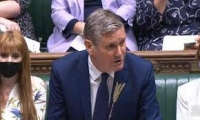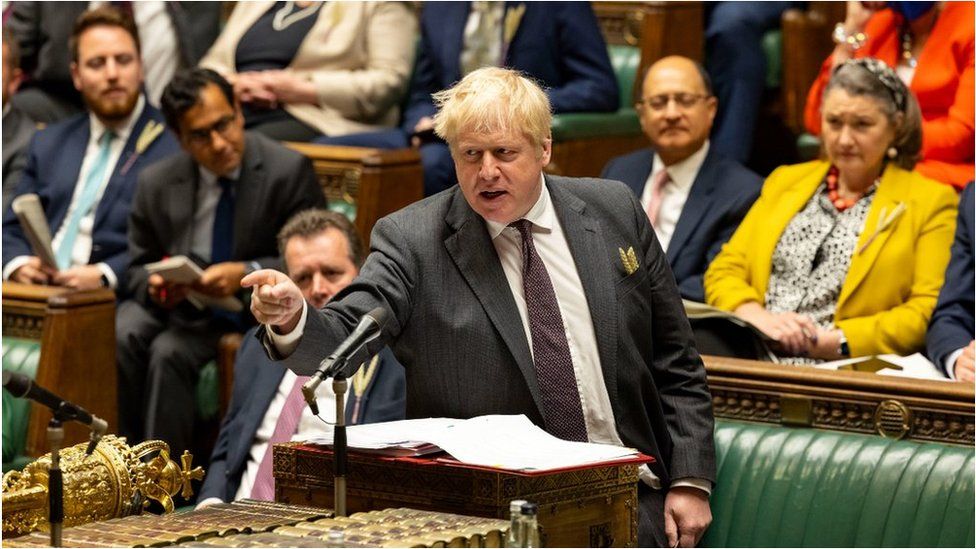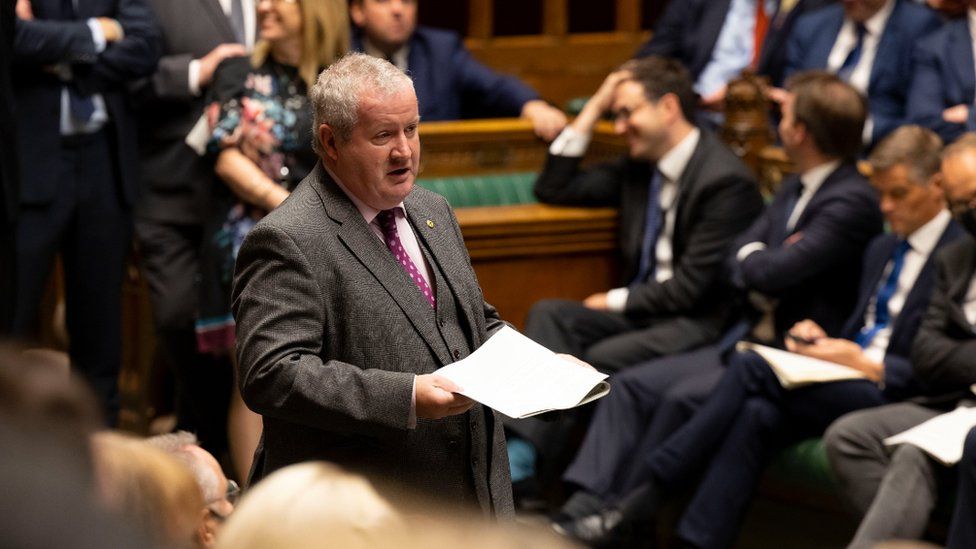Boris Johnson Flounders When Tackled on Universal Credit By Keir Starmer (updated)
Wednesday 15 September, 2021 Written by Simon Collyer/BBC
BORIS GETS MAULED - Kier Starmer takes Boris Johnson to task.
Boris gets absolutely savaged.
We have since added this from the BBC:
Claims about Universal Credit fact-checked
By Reality Check team
BBC News

IMAGE SOURCE,UK PARLIAMENT/ROGER HARRIS
The government's decision to remove the extra £20 weekly support payment to millions of Universal Credit (UC) claimants dominated exchanges between Boris Johnson and Labour leader Keir Starmer at Prime Minister's Questions.
It followed criticism of Work and Pensions Secretary Therese Coffey who said cutting the £20 would only mean "two hours' extra work every week" for claimants.
Keir Starmer: 'A single parent working on minimum wage, already working full-time, would need to work over nine hours a week just to get the money back'
This calculation was originally done by the Resolution Foundation.
The National Living Wage for those over 23 is £8.91 an hour.
Income tax would take off £1.78 of that and National Insurance another £1.07.
For people on UC who work (around 40% of claimants), the more they earn - above an in-work allowance - the more their benefit reduces. For every extra pound earned, the benefit payment reduces by 63p.
This would almost certainly apply to this full-time worker, taking off £3.82, bringing the hourly total to £2.24. That means they would have to work about nine hours to take home £20.
The government has responded to this analysis: "Many claimants are eligible for an in-work allowance, which means [they]… keep more of what they earn. For the lowest earners, working two hours more per week at National Living Wage can add up to around £20."
The government is talking about claimants eligible for an in-work allowance, but who haven't used it all. It hasn't said how many people would fall into this category though.
Not everyone is eligible for a work allowance - it's only those with children or those with limited capability for work.
Boris Johnson: 'Every single recipient of Universal Credit would lose their benefits under Labour because they want to abolish Universal Credit'
The PM made this claim several times - but it's misleading.
Labour's 2019 manifesto did indeed pledge to scrap UC, but was clear that it would replace it with an alternative system, so claimants wouldn't lose their benefits altogether.
It also said the party would not scrap UC immediately, but would make some emergency changes to the system so it would work better while the new benefit was developed.

IMAGE SOURCE,UK PARLIAMENT/ROGER HARRIS
Ian Blackford (SNP): 'When you take the cuts to Universal Credit and you take the increase to National Insurance… the average nurse will lose £1,736'
We have seen several estimates for how much the cut to UC and and the government's planned rise in the rate of National Insurance (NI) could cost workers, but this one from the SNP's Westminster leader is the highest.
It comes from a report from Action for Children, but their figure doesn't just cover these changes but "previous benefits squeezes over the last decade". So, this is an overestimate for just UC and NI.
The losses from UC are relatively easy to work out - it's £20 a week, which is £1,040 a year.
But the 1.25 pence in the pound increase in National Insurance, which comes into force in April, clearly depends on the amount people are earning.
Somebody earning £20,000 a year will pay an extra £130 next year, while somebody earning £30,000 will pay an extra £255.
Labour released research suggesting a newly-qualified band 5 nurse would lose £1,143 in total - that is the loss for next year after taking into account a pay rise in line with CPI inflation.
Boris Johnson: 'For the first time in decades, wages across the board are rising 4.1% up on where they were before the pandemic'
The prime minister is using a figure for February when the Office for National Statistics (ONS) estimated an annual growth in average regular pay of 4.1%, or 3.3% once adjusted for inflation.
Since then, wages have continued to rise and are now up 6.8% over the last year. 4.5% adjusted for inflation.
In April, the government increased the National Living Wage by 2.2%, to £8.91 an hour, the equivalent of £345 extra each year for someone working full-time.
The Office for National Statistics suggests there are other things going on with wages figures, however.
In particular, during the pandemic there has been a fall in the number and proportion of lower-paid jobs, which means average earnings have gone up.
Labour shortages may also be driving up wages. For instance, according to the Road Haulage Association, the UK is short of around 100,000 HGV drivers. Meanwhile, wages for HGV drivers have gone up by about 10%.
ABC Comment, have your say below:

Leave a comment
Make sure you enter all the required information, indicated by an asterisk (*). HTML code is not allowed.
Join
FREE
Here










